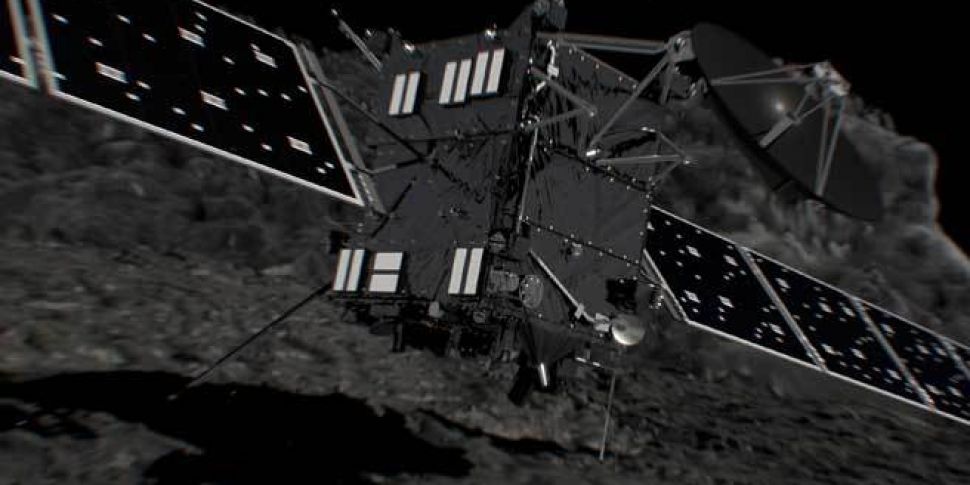The Rosetta mission from the European Space Agency (ESA) has ended, as the probe crashed onto the comet it had been investigating for more than two years.
ESA says the mission concluded as planned, with a controlled impact.
Confirmation arrived at ESA’s control centre in Darmstadt, Germany this morning with the loss of Rosetta’s signal.
Rosetta had targeted a region on the small lobe of Comet 67P/Churyumov–Gerasimenko, close to a region of active pits.
The ESA say the descent gave Rosetta the opportunity to study the comet's gas, dust and plasma environment very close to its surface - as well as take very high-resolution images.
Pits are of particular interest because they play an important role in the comet's activity. They also provide a window into its internal building blocks.
"The information collected on the descent to this fascinating region was returned to Earth before the impact. It is now no longer possible to communicate with the spacecraft", the ESA says in a statement.
The comet landing site | Image: ESA
"Rosetta has entered the history books once again," says Johann-Dietrich Wörner, ESA's director general.
"Today we celebrate the success of a game-changing mission, one that has surpassed all our dreams and expectations, and one that continues ESAs legacy of 'firsts' at comets."
Rosetta was being planned even before ESA's first deep-space mission had taken the first image of a comet nucleus as it flew past Halley in 1986.
Since its launch in 2004, Rosetta's nearly eight billion-kilometre journey included three Earth flybys, one at Mars, and two asteroid encounters.
The craft saw 31 months in deep-space hibernation on the most distant leg of its journey, before waking up in January 2014 and finally arriving at the comet in August 2014.
The decision to end the mission is a result of Rosetta and the comet heading out beyond the orbit of Jupiter.
The ESA say the distanace from the sun would mean there would be little power to operate the craft.










